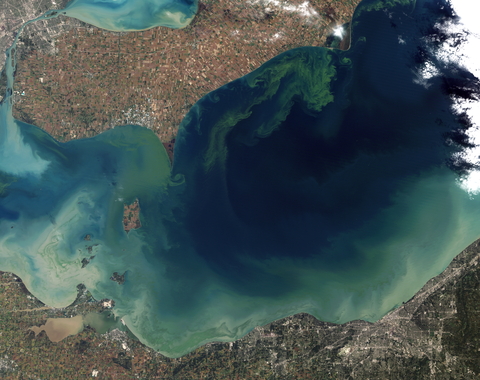Carnegie Science Venture Grants

Program Overview:
Following Andrew Carnegie’s founding encouragement of liberal discovery-driven research, Carnegie offers its scientists an opportunity to pursue bold ideas.
Carnegie Science Venture Grants aim to catalyze new collaborations that explore challenging questions with the potential to lead to breakthrough discoveries. Up to two adventurous investigations may be funded each year. The period of the award is two years, with a starting date within three months of the announcement of the selected projects.
Awards will be distributed once annually following the proposal and review process.
Key dates for current cycle:
May 30, 2025- Proposals due
August 29, 2025 - Announcement of Awards
Awards will be distributed once annually following the proposal and review process.
Applications can be submitted on Carnegie Connect
Proposals will be confidential and seen only by the review panel and Administration staff. Unless the scientists state a preference otherwise on their cover page, these proposals will be shared with the Development department after the review panel for potential efforts to raise funds for the projects.
Guidelines:
Requirements:
Please address the following questions in your proposal (2 pages maximum after the cover page, 1-inch margins, at least 11-point font):
-
What question does this work aim to address, and why is it important?
-
Why are this team and this approach well suited to investigate this question? How does the project differ from prior work, on this topic and by the participating scientists?
-
What is the potential for discovery or technological innovation with the work proposed?
-
What does the team expect to be the greatest challenges? How will the team measure success?
-
What critical resources would this award enable? Describe the budget.
Review Process:
The review panel will consist of a selection of Carnegie Staff Scientists.
Reporting:
Award recipients will report on their progress at the conclusion of the project period. The lifetime of the award begins at the first expenditure. No-cost extensions are possible if approval is sought before the end of the project period.
Eligibility:
Proposals should be led by at least one Carnegie staff scientist. Teams that include staff from more than one discipline are encouraged but not required. Collaborations with scientists from outside Carnegie Science are fully eligible for these awards. However, the awarded funds may not provide direct support to other institutions (e.g., funds may not support a faculty salary at another institution or the purchase of an instrument that will not ultimately reside at Carnegie; a joint studentship or postdoc is an example of an expense that could be supported). Additionally, Venture Grants are non-transferable and must remain at the institution. If the lead staff scientist transfers to another organization, any unspent funds stay with Carnegie.
Criteria:
In reviewing proposals, the panel will consider the potential strengths and weaknesses of each project.
What qualities strengthen a proposal?
-
High scientific quality
-
Creativity
-
Demonstration that the problem to be pursued is an important one
-
Cooperative interdisciplinary approaches
-
Innovative techniques or instrumentation
-
Making a clear distinction between the proposed work and past work
-
Potential for discovery and/or technical advances
-
Teams that include an unusual combination of skills, whether bridging labs or departments
-
Realistic scale of project for the funds available
What qualities weaken a proposal?
-
Direct extensions of prior work
-
Teams that reflect already existing collaborations
-
Unclear goals OR unclear paths to discovery
-
Lack of exciting concept
-
Too large a project scale for the funding requested
-
High dependency on people outside Carnegie